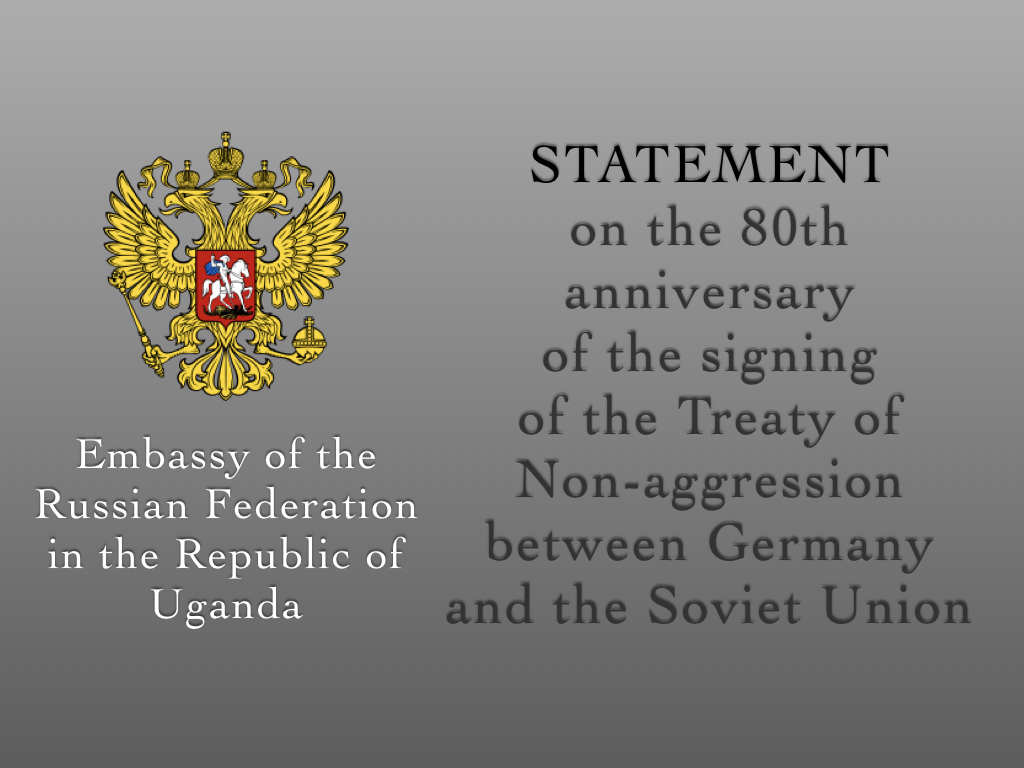Statement by the Embassy of the Russian Federation in the Republic of Uganda on the 80th anniversary of the signing of the Treaty of Non-aggression between Germany and the Soviet Union

August 23, 2019 marks 80 years since the signing of the Treaty of Non-aggression between Germany and the Soviet Union, also known as Molotov–Ribbentrop Pact, and the secret protocol on the delimitation of mutual “spheres of influence” of the USSR and Germany in Eastern Europe.
By the time the Treaty was signed, it became obvious that the war could not be avoided. This seemed clear because of the actions of Nazi Germany. In March 1938, Germany fulfilled the annexation (Anschluss) of Austria; in September 1938, Czechoslovakia was divided as a result of the Munich Agreement, which was the apotheosis of the Western countries appeasement policy, and in April 1939, Hitler made a final decision to attack Poland no later than September 1, 1939. Threatening war in the East, Japan conducted large-scale military operations against the USSR and Mongolia in the summer of 1939.
The USSR, which consistently advocated the creation of a collective security system in Europe, could not find any support from Great Britain and France. For a long time, negotiations between Moscow, London and Paris on the conclusion of an agreement on mutual assistance were stalled. During the trilateral meetings in the Soviet capital in August 1939, the delegations of Great Britain and France were not ready to sign the corresponding military convention making the negotiations pointless. On August 21, when it became clear that our country’s attempts to form a collective security system were in vain, the Soviet leadership agreed to Berlin’s earlier proposal to conclude a non-aggression treaty between the two countries. Hastily drafted documents were signed on the night of August 23-24, 1939.
The political and moral damage to the USSR, which concluded an agreement with the Nazi regime, was obvious. However, in those conditions, it was a necessary step that allowed the Soviet Union to avoid immediate dangerous collision with the aggressor. The treacherous policies of a number of Western powers, primarily Great Britain and France, which tried to channel Hitler’s aggression to the East instead of repulsing it, made the outbreak of World War II inevitable.
It is worth reminding that our country made an invaluable contribution to the final defeat of Nazism and the liberation of Europe from the invaders and suffered more losses than any other combatant state. Without Soviet manpower, the outcome might have been very different. Had the efforts of our country been joined in the pre-war period, many victims could have been avoided.
